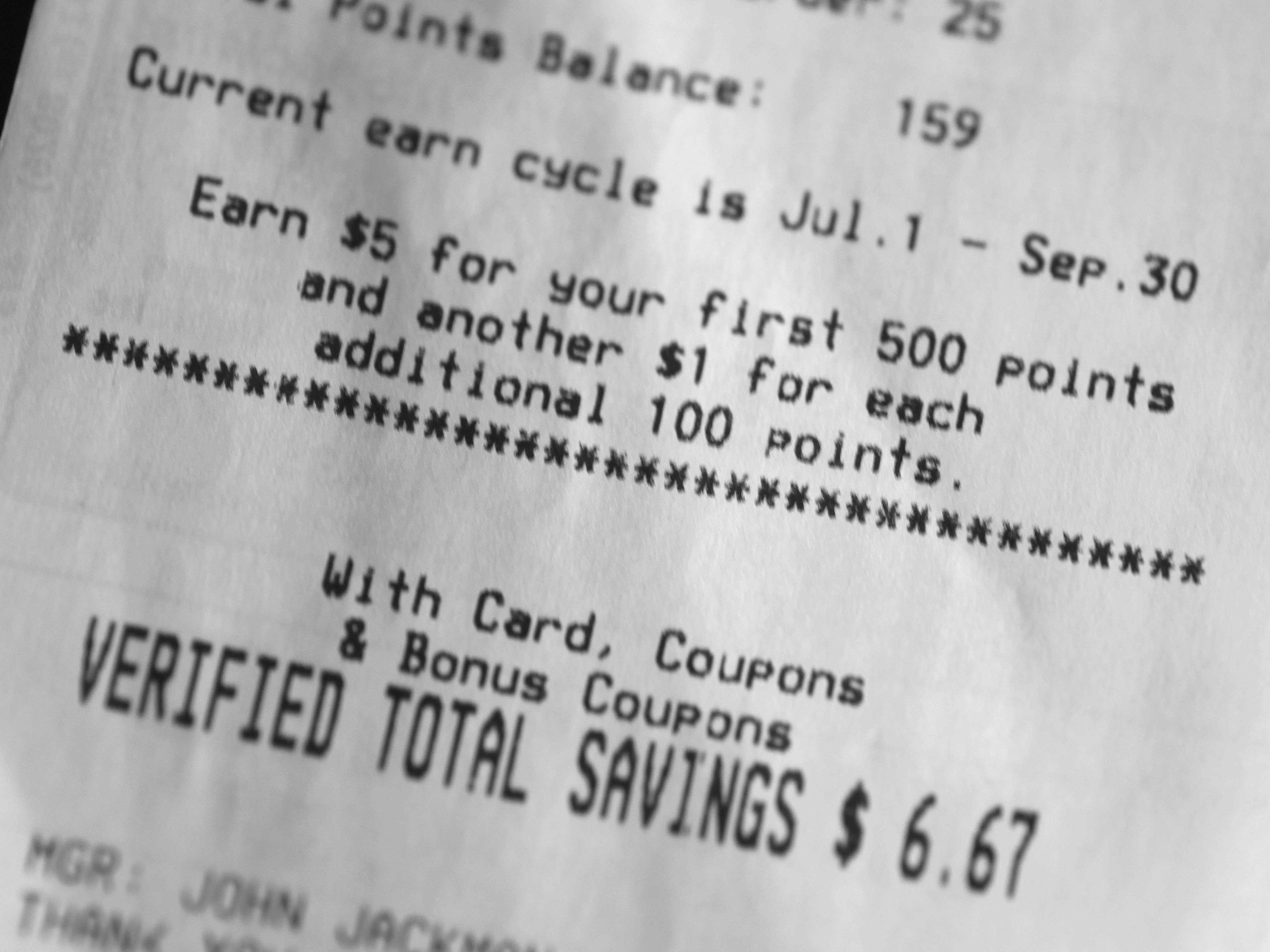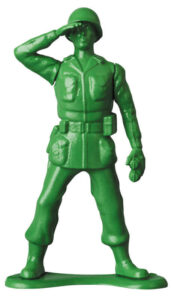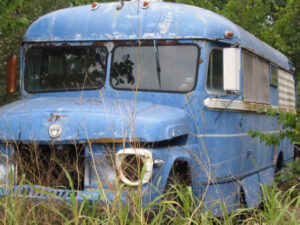Tag: short story
A Day in the Life
by The Cowl Editor on January 18, 2018
Portfolio

by Marisa DelFarno ’18
We have all had an unfortunate encounter with one of those disgruntled retail employees. You know, the one that does the transaction swiftly and wordlessly with zero eye contact. The one that rolls their eyes the second you mention that you have a coupon. The one that makes the unintelligible zombie grunt when you ask if a product is on sale. The one whose agenda is to shoo you out the door as fast as possible. Well, this is a testimony proclaiming why we retail employees are the most dispirited creatures to ever roam the face of the Earth.
We weren’t always the Morlocks of society. I like to think of most of us as just normal people trying to get by. But after having to deal with certain customers over a certain period of time, it does truly shape a smiley, happy-go-lucky, wide-eyed Peggy Sue into the most miserable brute there is. Here is Exhibit A of why I am affiliated with the class of nasty, disgruntled employees. Here is my retail horror story.
It is my first work shift of 2018. How exciting. I glide through the automatic doors, holding my coffee like I’m Lady Liberty holding her torch. My work shirt is still wrinkled from my last shift, my matted hair resembles a Brillo Pad, and dark circles shadow my eyes. I am tired—a zombie in essence—but I am somehow ready to immerse myself in labor for the next seven daunting hours. I make eye contact with my co-worker, Lauren, whose baggy eyes immediately light up with delight. She is already bundled up in her winter coat—a clear indicator that she is ready to get out the door. We do the quick changing of the guards, and I plop my styrofoam cup onto the counter.
Still cocooned in my coat, I clock in at the register. Suddenly, a lone customer with a packed carriage stands there like a bull, staring me down like I am some matador waving a red flag. Overcome with the odd medley of awkwardness and guilt, I remove my coat and fling it to the abandoned, broken register next to me. It is time to work. I shove the sign that says “Next Register Please” under the drawer and gesture for the customer to come to my register.
“Hey. How are you? Do you have your CVS card on you?” I say in my usual robotic voice.
“I have the number. Can I punch it in?” the customer replies.
“Sure.”
She hovers over the credit card reader and clandestinely punches in her number.
“Is the Christmas stuff still 50 percent off?” she asks.
“Yes, it’s—”
“When will it be 75 percent off?”
“I have no idea to be honest. Maybe starting next Sunday.”
“Oh. Well, it should be 75 percent off by now. It’s January.”
“Uh, yeah.” I shrug my shoulders indifferently.
I start to scan her shampoo, toiletries, and all the other things laid out on the counter. Fun fact about cashiers: We never notice what a customer buys nor do we care. Everything is just a shapeless blob with a barcode on it. You could put a live tarantula on the counter, and I would probably still try to locate a barcode on it.
“I have coupons,” the customer says before handing me a stack that mirrors a deck of playing cards. “And I have a 40 percent coupon too. Make sure you scan that.”
“Of course.” I scan the assortment of coupons one at a time and watch the price go down. The customer picks up the pen from the signature pad and begins to audit the transaction.
“Okay, so your total with the coupons will be $11.20.”
The customer furrows her brows. “The 40 percent off coupon…it’s wrong. It was supposed to take a lot more off.”
“It is an automated system. It already deducted it from the total price. Plus it does exclude sale items—”
“It’s wrong. Let me calculate it. It should’ve taken off more than $7.40!”
She yanks her phone from her coat pocket and begins computing the price like a NASA engineer. I am forced to stand there awkwardly and watch while she reviews her calculations.
“Oh, I guess it is $7.40. It still doesn’t look right. It should’ve taken more off.”
“Oh. Like I said before, it does it automatically, and the coupon does exclude sale items.”
The customer sighs and pops her credit card into the chip reader.
A scroll of receipt paper shoots out.
“Ooo, look! You got ExtraBucks!” I say in fake excitement.
“I know,” she replies before ripping the receipt from my hand and tearing the ExtraBucks off. “I have another transaction.”
Behind the lady, five pairs of eyes stare hard at me.
I pinch my headset to page one of my coworkers.
“Uh, Amber, I need backup,” I say monotonously.
The customer drops a few cases of Boost onto the counter. I start to scan the drinks.
“No. No. The prices are showing up wrong. It is supposed to be $6.99, not $11.99,” the customer barks at me.
I sigh. “Okay. Let me quickly verify the price.”
I slap the price verify button and, of course, the drinks still show up as $11.99.
“Sadly, it is still $11.99,” I reluctantly announce.
“No. That is not right!”
“I just verified it. It is saying that it is $11.99.” I swing the flat register screen towards her.
“Well, that is not what the sign said.”
I quickly begin to fumble around the register looking for a flyer to no avail.
“Let me check the aisle,” I sigh before beginning my excursion to the back of the store. I click my headset and page Amber.
“This lady is being so ridiculous!”
“I know. I don’t know how you are tolerating her. I would’ve already snapped,” Amber responds.
“Trust me. She is pushing me.”
I find myself in front of the display of Boost, Ensure, and all those other drinks. The customer got the bigger cases of the Boost, marked as $11.99, and no little yellow stickers are found near them. Only the smaller cases are marked as $6.99. I make my return to the register.
“I am sorry. The smaller cases are $6.99, not the bigger ones. But I will modify the price for you,” I say, deciding to be a good soul. I void the transaction, and go through the whole process of having her punch in her number, etc., and I start rescanning the Boost and modifying the price.
“Now, it is showing up at $6.99. I told you!” the customer says smugly.
“That is because I am modifying the price for you right now,” I reply.
After manually fixing the price for each case of Boost, I nervously tug my collar and declare the grand total.
“Okay, so that will be $29.80.”
“That is not right. Did you scan my CVS card?”
“You entered your phone number.”
“But you didn’t scan my card.”
“It doesn’t really matter. If your number is linked to your card, entering your number is the same as scanning the card. Plus I am manually modifying the prices for you so—”
“Void the transaction.”
“But…the price is going to show up the same. I just modified everyt—”
“Void it and scan my card.”
“But there is no use for that. The total is still going to come up the same, especially if I am modifying the prices by hand.”
“Void it.”
I reluctantly hit the void button, and I inhale with a phony smile, “Can I please scan your card?”
The customer fumbles around in her Coach bag before whipping out her keys. She flips through various cards, from Walgreens to Planet Fitness, until she finds the little red ExtraCare card.
“Thanks,” I say after scanning it, and I once again go through the headache of modifying all the prices.
“Okay, your total is $29.80.”
“I don’t think that is right still.” the customer replies.
“I-I modified the prices for you. Twice. Though they weren’t even on sale. It is still coming up as $29.80. I don’t know what you want me to tell you. I can void a case out or somethi—”
“No.” She shakes her head, inserting her credit card into the reader.
And finally, the transaction is complete, and my hair did not turn grey. I clear the flimsy plastic bags off the counter, and I quietly hand the receipt over to her.
“And I am expecting $10 in ExtraBucks.”
“What?” I am completely caught off guard.
“Yeah, I am supposed to get $10 if I spend $25 on Boost. That is what the sign said.”
Though I didn’t even see said sign in the aisle when I had to mow my way over there earlier, it has been made official—I am defeated. I have raised the white flag. I decide to override the system and issue the $10 ExtraBucks, hoping to send her away.
“Okay, have a good day now.”
“No, wait! I have my mother with me.” She points to an older woman with a carriage filled to the brim. “She needs to get a few things too.” The customer hurls her keys onto the counter. “Here. Scan my card again.”
Gunshots
by The Cowl Editor on November 30, 2017
Portfolio

by Jonathan Coppe ’18
“What’s the deal with limp-biscuit over there?” Al scoffed, gesturing toward Logan, who stood rather listlessly some 50 feet off.
“I don’t know,” Jim shrugged back. “I’ve been tired of seeing him moping around the apartment. I thought maybe coming out with us would help, give him an adrenaline rush or something.”
Al gave him a sideways glance.
“He asked to come!” Jim added in defense. “It’s not like I invited him. He asked to come. I wasn’t gonna say no.”
Al rolled his eyes slightly but let the matter drop. The fool was here. Nothing to do about it now.
“Well, tell him to hurry up,” Al said.
“Hey, what’s the hold up, Logo? C’mon, we gotta get in here.”
They were outside a warehouse. Logan had known before he moved in that Jim spent a fair amount of time with shady individuals downtown. He had basically inferred that Jim was involved in crime of some kind. It wasn’t a particular surprise, therefore, when he learned that Jim was a part-time thief. Logan wasn’t, of course, but he and Jim had needed a flatmate at the same time and rent at Jim’s place was cheap. It was better than moving back in with his mom.
The night was muggy, and Logan didn’t feel like hurrying over to brown-toothed Al and getting a point-blank whiff of his malt-beer, dip-spit-scented sweat. But he hurried over. He didn’t want to go back to the apartment, either.
Al and Jim led him over to a padlocked steel door.
“Hold this.” Al handed him a tool bag. He pulled out a pair of bolt-cutters and killed the lock.
“Wait here.”
Jim frowned, “Al, let him come in. He—”
“He waits out here.” Jim looked at Logan to apologize but Logan just shrugged and looked off.
And they went in.
Logan put down the toolbag after about three minutes and started to look around. The warehouse had four steel loading doors big enough each to fit a tractor trailer. The warehouse was on a compound which they had to climb a fence to get into. That probably explained the lackluster security at the warehouse itself. No alarms on the side of the warehouse that he could see.
There was probably a security station or something like that nearby, Logan figured. He hurried away from the warehouse to look.
Back inside: “Al, this one’s got some nice wine in it!”
“We can’t sell that.”
“Give it to your wife! Or I’ll drink it.” Jim laughed.
“How much longer do we have?”
“Don’t worry about it. Security here is the pits.”
Then they heard a siren.
The haul wasn’t big, maybe only a few hundred dollars once they sold everything. Jim had got his bottle of wine. The compound had two or three police cruisers on it now, all full lights blazing. They could hear some shouting.
No worries, though. They had hurried out pretty quickly, no time for cleaning up, but they made it past the fence and Al was careful as a rule. He wore gloves and didn’t leave behind anything of his own. He wasn’t worried about being caught. But then something occurred to him.
“Jim, where are the tools?”
“I gave them to—Oh, shit! Where’s Logan?”
Bang.
“Sounds like he’s still in there. You said he was depressed?”
Bang. Bang. A pained cry echoed from the compound.
“Poor guy.”
The Return
by The Cowl Editor on November 30, 2017
Portfolio

by Marisa DelFarno ’18
The land is vacant like the beach’s shore at dawn. The tires of my car tilt towards the cobblestone driveway, and convulse over the uneven jagged surface. Acorns, twigs, and wayward leaves layer the glittery cobblestone. As I zigzag my way up the driveway, a Japanese red maple tree appears, standing prominently in the center of the yard. It is twice the size from when I last saw it. The crimson star-shaped leaves are still there, well until the cold December wind blows. The fuchsia shrubs are there too, still closely hugging the side of the house. Overgrown and no longer invaded by fuzzy bumblebees. The fuchsia leaves are starting to mature to a dull brown—the harbinger of a season’s end. The untrimmed grass neighboring the house is disguised by a blanket of orange and brown debris. Chipped, weather-faded paint coats the house, and the roof is missing a few shingles here and there like holes in an old, worn-out sweater. I do not bother to peek through the cobweb-framed window. I know that the inside only holds emptiness and echoes of the past.
Now, in the pale autumn afternoon light, a place where I spent the early years of my life has suddenly become unrecognizable. Like I am visiting a stranger’s house for the first time. Like this house was never mine. But I have come to know one thing. A house is only a shell.
Homecoming
by The Cowl Editor on November 30, 2017
Portfolio

by Connor Zimmerman ’20
Sinking into my couch, I begin to close my eyes. The sweet aromas of baking cookies travel around the house and begin to make me tired. I let out a long yawn, when suddenly my phone begins to buzz. I grab my phone lazily and look at it. Several texts pop up on my phone, but the only one that I see, like usual, is, “Usual place, same time?”
I reply, “You know it.” I switch my phone back to its home screen and see I have 20 minutes to nap before I get going. Yeah, it’s good to be home.
Driving through the night, car headlights flash before my eyes as I travel down the highway. I put on my blinker and turn into the place. I pull into the parking lot and see there are eight other cars already parked. The gang’s all here. I walk into the place and walk over to the usual table. Eight guys are huddled over a small bar table laughing like one of them had just said the funniest joke on Earth. I grab a stool from the table next to it and pull it over. They all look at me and shout, “Heeeey, Brian is back!”
A tinge of nostalgia begins to hit me. I laugh and reply, “C’mon, don’t get emotional on me. What did college do to you guys?” They all say various responses at the same time as if I can hear what everyone is saying at once.
When they settle down, Kevin asks me, “So man, what is college like for you?”
I reply with the basic answer, “Pretty sure like yours, man. Classes are kind of difficult, but I live for the weekends.” That gets everyone excited. They all raise their drinks and take a giant gulp. The waitress comes over and hands everyone their burgers, placing one in front of me.
Frank, seeing my surprised face, says to me, “You think we don’t know your order by now, man? We only came here every weekend during high school.” We all laugh at this and take a bite out of our burgers. The grease and juice drizzles down my chin as the burger falls like a rock in my stomach. I realize how much I have missed this, how much I have missed them. I’m not the only one, as the nostalgia strengthens its claim over us.
John says, “You guys remember our trip down to Block Island? Those were the times.”
Colin replies, “Dude, what about our trip to Montréal, that was legendary.”
Ryan says, “I can’t even remember those trips, man.”
I reply, “So your usual weekend.”
We laugh, and Ryan shakes his head. “Yeah, man, you’re right.”
I look over at Ben and begin to laugh. I hadn’t seen it before because of the lighting, but I say, “Ben, you legitimately look like a serial killer with your shaved head. I bet you don’t even drive past a police station for fear they will take you in.”
Sarcastically, Ben says, “Funny, man, funny. Even with a shaved head I look twice as good as you.”
Mike jumps in and says, “Yeah, Ben, your crazy eyes don’t help either.”
Ben shakes his head, “So I go to a military school, get over it. Next year, I don’t even have to shave my head.”
We all begin to laugh again. With every laugh the nostalgia has grown stronger and stronger until Jason finally blurts out, “Man, imagine if we all went to the same college.”
We all nod our heads solemnly thinking about what could’ve been. We take another sip of our drinks, when Frank decides to break the tension, “We’d all probably end up in a ditch somewhere.”
Colin replies, “That would have to be some massive ditch, especially if you fell in with us.”
Laughing again we finish our drinks and burgers and begin the usual goodbyes, “I got to get back to my family.” “I got to finish up my paper.” “I got to go see my girlfriend,” etc. Walking back to my car the nostalgia ebbs, but something else begins to grow in its place. Regret, guilt, sadness.
I look back and think this is our future. Yeah, it’s good to be back home, but for how long will it be home?
For The Home Front
by The Cowl Editor on November 16, 2017
Portfolio

by Madison Stevens ’19
She took two steps off the plane and knew she was home. The smell of metal and hand sanitizer filled her nostrils as she sauntered out of Terminal B and down to Baggage Claim C at Logan Airport. The bags slipped out one after another and onto the circular conveyer belt; it reminded her of when she was little and wished more than anything she could hop on a duffle and ride it with the rest of the bags, bringing her back to whatever destination she had returned from.
Not this time. This time there wasn’t anything she wanted more than an iced coffee from Dunks and her dog Sarge curled up at her feet while she watched Tom Brady tomorrow at 1 p.m. She had no desire to return to where she came from.
A man came to stand beside her, tilted his head slightly forward in a nod as he gave her a soft smile that originated from his eyes—he reminded her of her father. He asked her all of the usual questions, to which she replied with all the usual answers and a smile to let him know she wasn’t too battered.
She turned to her right to see a family of five, two little blonde boys teasing their younger sister with miniature airplanes and green army figurines. One made gunshot noises with his lips, and it sent a small chill down her spine.
She redirected her attention to the kid’s parents. The mother’s eyes were darting around the carousel looking for their last bag while the father was apparently calling an Uber XL for the family’s return home. She imagined they were going home to a white-picket-fenced house with an American flag hanging next to their door; the vision caused her to smile and bring her hand up to the chain around her neck, a habit she had picked up about nine months ago.
She felt a vibration in her pocket and took her phone out to reveal that her younger brother Luke had texted her wondering when she would arrive home from the airport. Her fingers danced across her screen like rapid fire as she replied, “Be home soon. Remember, don’t tell Mom. Love, Millie.” She lifted her head yet again to the carousel looking for her green bag that should’ve been out by now.
A bell rang intensely overhead and Millie flinched and looked around in a panic, only to realize it was just the warning that all of the bags had been emptied from the plane. She continued to crane her neck looking for the shades of green that should be circulating around amidst the black, navy, and occasional hot pink suitcases.
She felt a tug on her pants and looked down to see it was one of the blonde boys with big brown eyes looking up at her. He raised his green army man with a smile and said to her, “You look like him. My dad told me to come say thank you for your service.”
All the blood instantly rushed to Private First Class Millie Johnson’s face as she looked down at her camouflaged combat uniform and caught the chocolate eyes looking up at her with pride.
This is why she does what she does, so that those big brown eyes can close without a worry in the world when he goes to sleep at night in the confines of that white picket fence.
“You’re welcome,” she said, with one hand on her dog tags.
Maybe Next Time
by The Cowl Editor on November 16, 2017
Portfolio

by Jay Willett ’20
“Damian! They’re here! Damian!” Alyssa screamed over the bank’s sirens. I tossed aside the weeping attendant and ran for the glass door. Blue and red lights flashed across the Roman marble, blinding me as I peered from behind a column. The ride we had left on the curb was missing and was replaced by blaring police.
“Where the bloody hell is Jacob?!” I hollered at Alyssa, as she shuffled the remaining pounds into the duffle bag.
“Gone! The bastard got up and left us!” her voice cracked. Alyssa tossed me the bag and I reloaded my pump-action shotgun. The first shots were just warnings, nobody was supposed to get hurt, but these next shots I knew would count. Alyssa took cover beside me, gripping the .44 magnum that she had stolen from her father.
“We’re actually going to do this, huh?” she smiled through her panicked tears. I smiled back, having one hand on the gun and the other in her warm hand. We were just two kids running from the past, our parents, and relentless society—the whole bloody lot. As cliché as it was, we felt pride in being the British Bonnie and Clyde.
“Come out now kids, let’s talk about this, huh? Damian? Alyssa?” the megaphone roared over the alarm. I didn’t want to look back out around, all I wanted was to spend the rest of my petty life crouched and looking into her blue-eyed gaze. Oh God, how I wished time would just take a break and let us freeze for a while longer. Alyssa’s tears hit the floor, and against my own will, my body positioned and fired the gun to shatter the glass. I scowled and felt my life’s frustration release along with the trigger.
Troopers yelled, the first bullet tore open my shoulder, the second pierced my abdomen. I reeled backwards, laying upwards as Alyssa’s sobs grew louder than the troopers’ footsteps outside. I smiled when she brought her face close to me, I wiped away her tears and parted her long hair around her ear.
“Look at us,” I chuckled, our hands still together. She smiled through the tears and held my hand up against her cheek.
“Do you think we would have ever made it?” she asked.
The marching footsteps grew louder.
“Maybe some other time, Lyssa.”
The sirens tuckered out, the silence of the hall left only her soft breath and the marching soldiers audible. God, I loved her so much. She leaned down and kissed my bloody lips. That was the worst kiss we had ever shared, but it was the best all the same. They probably saw Alyssa’s pistol, because the guns rang through the silence and entered our hearts.
Yeah, I thought for the last time, maybe next time, love.
Afro
by The Cowl Editor on November 16, 2017
Portfolio

by Dawyn Henriquez ’19
I was six or seven. It was a scalding Dominican summer day that began with a hurried packing of bare essentials— underwear and shorts—as my aunt prepared me for a visit to my grandmother’s in the campo. It was basically out in the wilderness, some miles away from the city.
While I was inside, saying goodbye to my cousins, readying myself for the journey ahead, the guagua seemed to appear out of thin air, blasting its horn outside my aunt’s door in a frenzy. I peered outside to see a rusted chassis with a navy coat of paint that was one rainstorm away from peeling off. The four tires seemed about ready to melt in the noontime sun. Each one in a different phase of their lives, three in their respective winters, while one had seemingly just been reborn in the spring.
I couldn’t see inside past the tinted windows, but I knew the driver had to be a disheveled old fella of some sort, impatiently tapping his foot, wanting to be on his merry way. Those drivers were always miserable guys and I’m sure the equatorial summer had plenty to do with it. Though somehow, through the rusted disrepair of the bus and the likely irritable driver, I imagined a Magic School Bus adventure with a male Ms. Frizzle at the helm of it all. Needless to say, it was nothing of the sort.
I arrived what felt like days later to my adolescent mind. I was cramped next to my aunt the entire time, who was dropping me off at a stop where one of my uncles would pick me up on his scooter. She held my hand most of the way there, I don’t know whether it was to reassure me she was there or whether it was to reassure herself I was.
Everyone worries a little too much in a Dominican family. Especially if you come from the States; they always think you somehow reek of New York, even if you’re from Rhode Island and not the famous “Nueva Yor,” the state that embodies most of North America to everyone there. Caribbean families always think you’re going to get robbed or kidnapped and held for ransom or something. To this day, as an adult, they expect me to take off any jewelry just to be safe. They thought if they got rid of any physical indication that I was from the States that they could protect me, but my broken-ass Spanish would forever be a dead giveaway of where I came from.
The ride to my grandma’s house on my uncle’s scooter was almost five hours with the midafternoon sun on my neck and back. Or at least that’s what it felt like at that age; it was probably less than 30 minutes in real-time. The scenery shifted from close knit buildings reminiscent of old 1950s sepia pictures to all fields and woods. Eerie little bundles of houses gave way to outpost- like buildings, and past that to nothing but dirt road and tropical trees. When we reached another huddle of shabby houses painted in classic Caribbean greens and pinks we stopped; we had reached as far back as my maternal ancestry went.
It was a modest little setup; everyone had just enough room to be okay but not quite enough to be fully comfortable. The community itself stared off into the distance at an African grassland seen through young eyes. The stalks of grass in front of my grandmother’s house were that tall, giant even. Every strand a part of a place that laid the stepping stones to my existence.
“Bendición mami,” I said with excitement laced in my blessing. Her sun beaten arms wrapped themselves around me like lush brown earth, ready to nourish a seed. Una negra hermosa. She was the color of a warm cup of coffee on a wintry night in the States, with just a subtle hint of cream giving her a chocolatey complexion. Over the years, I grew to associate that color with her warm hugs and tender forehead kisses.
“Que Dios te bendiga, mi amor,” her cinnamon scented voice whispered down to me. She hugged me tightly, not wanting to let go of her small grandchild the color of caramel coffee with extra cream—the result of her falling in love with a half-Italian, half-Dominican breed of arrogance who thought he could bypass fertility even though he didn’t even use a condom.
That visit was one that would forever change me for the better. During my time with her I realized that I am la sangre de mi sangre, the blood of my blood, coming from both the conquerors and the conquered of a New World, like all Caribbeans are. It was she who taught me to love the skin of our ancestors, the ebony-ivory tomes of our collective pasts—the pages of our history. And it was she who taught me that love extends beyond what we can see through the flesh. Shit, I wish my grandmother had shown America how to love.
The Opportunity of a Lifetime
by The Cowl Editor on November 9, 2017
Portfolio

by Sam Pellman ’20
Today was the day. The day she’d leave her home for three months and never look back. Well, not really. This also wasn’t just leaving for college; she was a junior after all. No, this was different. Instead of returning to her beloved campus she’d missed all summer long, she was getting on a plane and going to a different country. Better yet, a different continent, across the world. Thousands and thousands of miles away.
Were the nerves kicking in? Just a little bit. The summer started off fine, there were no anxieties, just stress-free, sunny beach days. Yet, the closer and closer it got to August, the more and more she began to doubt her decision. Should she really have committed to studying abroad? Was she really going to be able to survive three months across the globe? Without her family or friends? At this point, it looked as if death were inevitable. She wanted to withdraw from this program, get out and run. Go to back to campus, her home away from home, the familiar place she felt comfortable in. Yet, every time she tried to stop herself from going through with this choice, something stopped her. She didn’t know what it was, but something wouldn’t let her miss this opportunity. After all, this is an opportunity of a lifetime.
When else will she be able to roam around the streets of Paris with a crepe in one hand and a simple tea in the other? At what other point in her life will her study spot be that shady bench under the Eiffel Tower? When else will she be able to spend her Sundays getting brunch with baguettes and onion soup and then later getting lost in the Louvre? Or will she be able to run up and down the halls of the Palace of Versailles pretending she was royalty? All this rested in the back of her head. She pictured herself doing all these things and remembered that if she dropped out now, all these dreams would only be dreams. They’d be fantasies she’d never be able to explain to anyone else because they simply aren’t real.
It was finally the day to leave, but instead of being only nervous, she was excited. Excited to begin a new life, have a fresh start in a place where no one knew who she was. She could express herself, experience an entirely different culture, and maybe even find who she is. Maybe that’s the whole point of going so far. To immerse yourself into a different life with no one’s help but your own. To grow as a person and come back full of new and engaging intelligence of a place your heart has been for three months. To give up this opportunity is to give up a dream. She squeezed her parents one last time; after all, they promised they’d make an extended visit at some point. She grabbed her passport and turned to the gate. This was it, this was her new beginning. She turned around one last time and shouted, “Au Revoir!” to America for at least a little bit. From here on, she’s a French girl.
The Painter Revealed
by The Cowl Editor on November 9, 2017
Portfolio

by Marisa Gonzalez ’18
White walls surrounded him, cared for him, gave him a home. It had been three years since Ian Michael Emerson was admitted into the Rockville Mental Institution. It had been two years since he started art therapy. No one was really sure what was wrong with him. Ever since the day he was admitted, I. M. Emerson had never left his little corner. This corner became his world, the white walls his canvas.
I.M. Emerson was a great mystery to the nurses. He seemed content in his corner, although nothing was there. It was just him. “It must be lonely,” said one nurse. She was young, too young to understand the beauty of being alone. “It must be boring,” yawned another. She, too, was naive.
Emerson had been listening and smiled. He then closed his eyes and let the white walls consume him. After a year of watching Emerson stare blankly at white walls, one nurse decided he needed a way to express himself. That was how I. M. Emerson got his paintbrush, his magic wand. When a brush, paint, and a blank canvas were placed in front of him, he smiled, his eyes shining. He picked up the brush and carefully dipped it into the red paint, and thus the painter was born.
It was not until May 14 that someone had discovered his secret to contentment. Nurse Plath was a young woman with fair hair and brilliant blue eyes. She had often watched Emerson from afar and marveled at the man’s quiet demeanor. “Too quiet,” Nurse Plath thought. “Something must be going on.” It was on May 14 that she decided to make the mysterious man talk. She took a breath and entered the room.
Once in the room she was greeted by bright, untouched white walls. They were so free and unworn, she suddenly felt happy. As her eyes made her way into Emerson’s corner, that happiness faded away. The walls in his corner were filled with scratches and canvases.
Her eyes glided toward each canvas. They were filled with mixed colors, splattered like a child painted them. She noticed the man, eyes transfixed on his current painting. This made her feel uneasy. Why would a man be so concentrated on a splatter of color? There was simply nothing there. Nurse Plath looked away from Emerson and her eyes fell on a canvas sitting in the center of the room.
This canvas had an actual painting on it. Unlike the others, it was shrouded in vibrant light. As she got closer, she noticed it was a painting of Emerson.
“That is my dream.”
Nurse Plath jumped. She turned and saw Emerson. No one had really seen him before. He looked old, as he was draped in darkness from the corner. However, when he came toward the canvas in the middle of the room, he lit up. Youth and ambition exploded from him. He smiled crookedly.
“It’s nice,” Nurse Plath smiled. She then looked back at the wild colors of the other canvases and asked, “Why has this painting not been put up?”
Emerson tilted his head. His eyes crinkled. “Why do you ask?” he inquired.
Nurse Plath smiled politely, “Well, it is quite beautiful.”
Emerson nodded his head slowly in understanding. “Indeed, but that painting does not portray life. It’s only a dream. True life is chaotic and one needs to find beauty in the madness.”
He stepped back into the corner and was once again engulfed by darkness. His appearance returned to that of an old man. “This is my reality,” he stated. “And I am content.”
Bang
by The Cowl Editor on November 2, 2017
Portfolio

by Marelle Hipolito ’21
Ava crouched by the bushes. This is it, this is the time, she thought to herself. She wanted to go slam open the store door, saunter over to the middle aged woman, confront her for her crimes, and punish her for them.
But some part of Ava wanted to keep watching her, studying her. The past few weeks, her target went about the small Virginia town as an ordinary person, living a simple life on the East Coast. It was as if on Thanksgiving night she never set a house full of Ava’s family on fire, as if she had never been a lifelong assassin for a secret European communist government. It was almost as if the woman had never ruined Ava’s life, leaving her with nothing.
Ava shifted between the bushes and the trees in the night. The side street was quiet, only crickets could be heard in the distance. The cracked pavement reflected the moon, full tonight. Usually, the places the woman went to drove Ava nuts with how boring they were. The grocery store, the pharmacy: Ava thought it was useless to watch her target at those places but she knew she didn’t have a choice. It was either watch her all day, or lose her in a second. Ava’s target wasn’t just some civilian, she was an assassin. She knew how to disappear if she wanted to.
Ava wanted to watch this woman as closely as possible. But this was Ava’s favorite place that the woman went to: the town’s first and only bookstore. Every Thursday night, Ava found herself between the thick trunk of an oak tree and the stiff leaves of the bushes, looking across the street to the books through the glass window, more than looking at the woman herself. She couldn’t help but remember her father, who used to take her to an antique bookstore one block away from the Brooklyn Bridge every month.
Ava shrugged off the thought. She rarely cried, especially after the fire. After that night, she had nothing to lose and nothing to care about. This Thursday night, spying on the woman in the bookstore, was no exception. But this Thursday night was one she would remember. No more mourning, no more helplessness—only justice. Ava let out a big sigh. She got up from the grass, brushed off her coat, and began walking toward the bookstore.
Tonight is the time, this is it, Ava kept repeating to herself. She looked up, and froze. The woman was gone. The front door to the bookstore was still swinging open and close, the bell at the top still chiming. Ava scolded herself, Of course you lost her, now she could be anywhere. She looked up and down the pavement, but there was no trace of the woman. Ava started her way back to the woman’s townhouse. She walked down the street only a few steps before she heard the click of a handgun off safety mode behind her.
“Hello, Ava.”
Ava’s heart began beating so hard that her chest throbbed. Her adrenaline rushed, her head began to pound and shake with anger. She turned around very slowly, with the barrel of the gun still cold on her skull. Ava looked into the eyes of the woman she had been tracking the last two months. Of course she’d find out, she’s been a trained assassin her entire life. Ava narrowed her eyes, and clenched her jaw before she spoke.
“Didn’t see you there, Mother.”
Ava’s mother laughed. “No, Ava, you were just within 50 feet of me the past seven weeks without even knowing.” With the gun still at Ava’s forehead, the woman looked behind her. The bookstore was now closed, with the lights off. The entire street was now empty except for the two of them.
“Oh honey,” Ava’s mother pouted. “The bookstore remind you of someone, dear?” She cocked her head curiously at Ava.
Ava was taken aback. The reality of her mother’s heartlessness slammed into her like a ton of bricks. How can she just… Ava’s thoughts went wild; she didn’t know what to say. She was absolutely disgusted at this woman, standing so shamelessly in front of her. What kind of….?
Ava closed her eyes. Suddenly, all of Ava’s strength broke. Why do I even bother? Her walls were stripped down, revealing another side of Ava. It was the weak, helpless side of her. The Ava that watched her father and uncle die in the house, trapped by the fire. The raw, emotional, fragile Ava. Her adrenaline dropped to nothing, her body slacked. She didn’t want answers anymore. She wanted out. Ava suddenly became exhausted with herself, her meaningless empty life, and her monster of a mother.
“Go ahead, Mom. You eliminated the rest of the family, finish us off tonight.”
Ava positioned her head so that the barrel of the gun was at the center of her forehead. “I’m done watching you, trying to figure out why you did it, or why you didn’t finish me off. Just do it and finish what you started now so, we both won’t have to worry about anything anymore.”
Ava’s mother looked at her curiously. “Really? I thought you’d last longer. I didn’t raise you to give up, Ava.”
“Shut up!” Ava screamed. “Just do it already! I’d rather be dead with Dad than breathing the same air as you. Go on, finish it!” Ava was shaking with tears. She didn’t know what was going to happen next, and she did not want to know. Ava didn’t really care at this point. She just wanted her life back. And since that couldn’t happen, she thought she might as well not live.
Ava’s mother was still holding the barrel of the gun to her daughter’s forehead. She said nothing.
They stared at each other for another minute, mother and daughter, silent and crying, motionless and quivering, until Ava’s mother broke the silence. She sighed.
“Anything for you, dear.”
Ava’s mother blinked when she heard the bang, and the body of her daughter crumpled to the ground. She turned the other way, her heels echoing with every step.
She never looked back.
